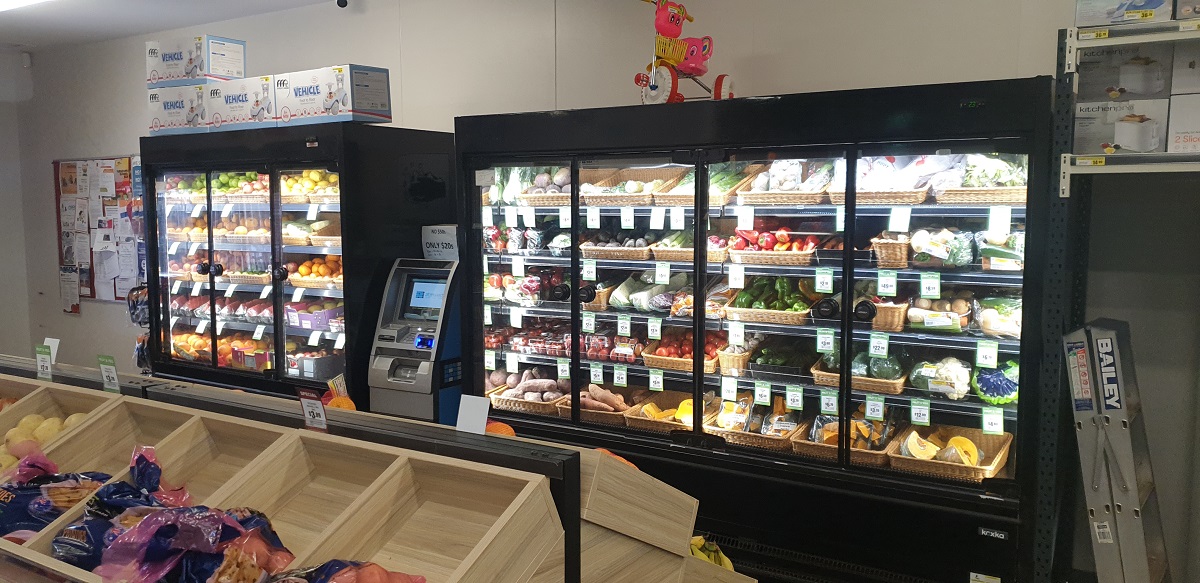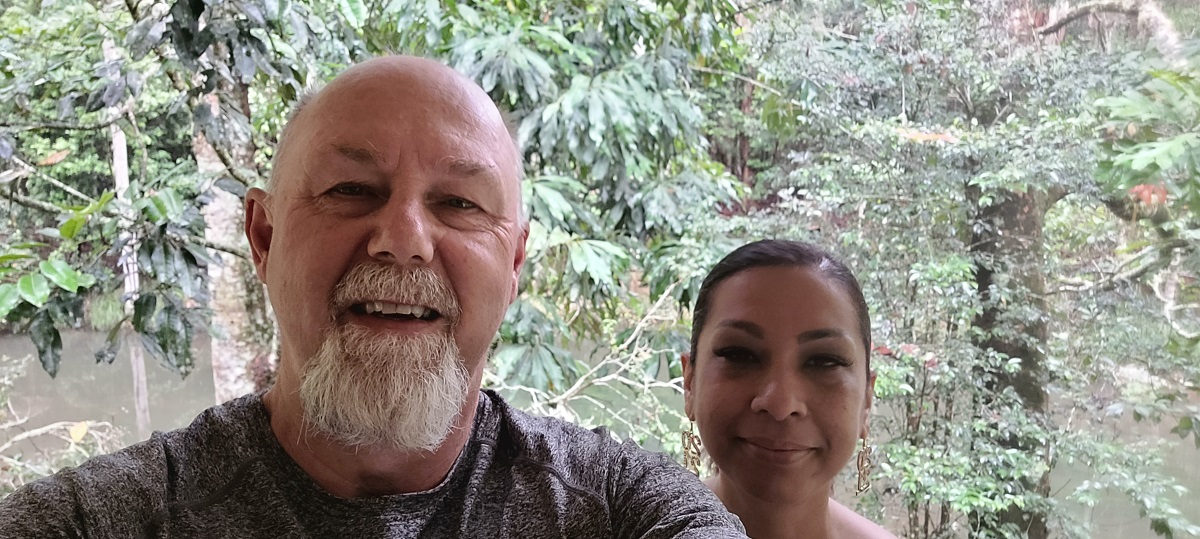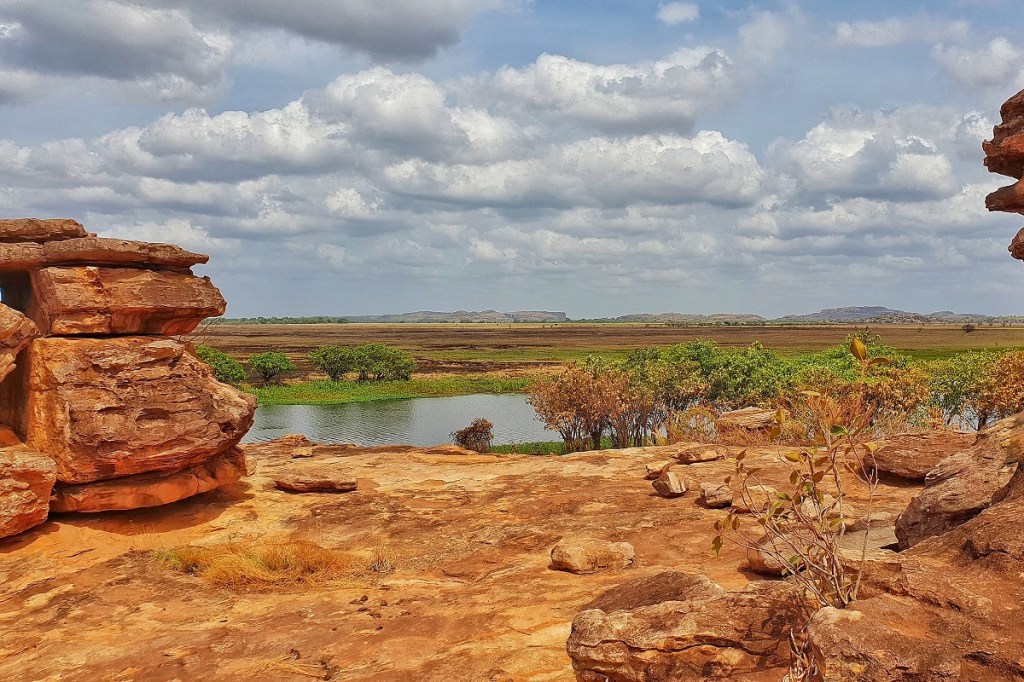In the last instalment, Mark McGirr and his wife Penny had just said their goodbyes to the community of Peppimenarti in the Northern Territory and were off for three months travelling the Kimberley.
Let’s continue with them on their journey as travelling remote store managers…
Our next stint was with a company called The Arnhem Land Progress Aboriginal Corporation (ALPA). This is a large company that manages quite a few remote stores in the Northern Territory and Queensland. We flew from Cairns to Darwin and, after an induction at their head office, were flown out to a community called Ramingining in Arnhem Land.
We were there as assistant managers, to go through company training. We knew their computer systems as it was the same as we had used in Peppimenarti. Their ordering system was again similar, dealing with the same suppliers. But being a much larger company, they had a merchandise team that did the special buys and allocated stock to the stores when needed. The managers here were a young couple and great to work with. The store was old and due for an upgrade, however, it had a large takeaway section with a separate entrance. There were a large number of staff working in the store and we traded seven days a week. The store was owned by ALPA, rather than the community. They own a few stores in other communities, while most other stores are classified as ‘consultancy stores’ and owned by the community. They had a core range, as they called it, a top 50 lines of products that were the same for every community. You could deviate from this range or increase the range but had to get approval prior to doing his from the merchandise division, which was never easy.
Stock was brought in by barge each week. The store had a truck and trailer that would drive the eight kilometres to the barge to pick up the stock. After three prior postings, we could see that warehouse space as well as chiller and freezer space varied dramatically from location to location. Coming from the Peppimenarti store, that was designed to carry large volumes of stock and had the space to store stock, this store had a very large turnover with very small storage areas. Stock for the chiller and freezer was constantly double handled to always make space. We were here for three weeks before being flown to another community, Gapuwiyak, to assist in running a different store for a three-week period while the managers went on holidays.
The ordering system the company used was long and drawn out. Every supplier had its own folder with ordering sheets. These had to be filled out manually and then had to be inputted into the computer by the price look up (PLU) numbers. Some orders took up to three hours by the time the sheets were filled out and punched into the computer with the quantities needed. It was a rather frustrating and antiquated system. The systems we used in every other store prior had used a scanner with an input for the order quantity, which was then uploaded into the computer. This took between 20 to 30 minutes to do for a major supplier.
After five weeks, we were finally given a store to manage on our own. It was located at Gunbalanya in West Arnhem Land, in Kakadu about 300km east of Darwin. The store had been renovated and was located within walking distance of our accommodation. We replaced the managers who had been there for two years. The store had a good-sized warehouse plus another two old warehouses. It was located just up the road from Cahills Crossing, which is a huge crocodile habitat and is subject to heavy seasonal flooding. The store did have to carry four months’ worth of stock due to being isolated in the wet season. The freezer storage was sizeable, while the chiller storage was very average. A small change in shelving gave us a little more room. We had quite a few local former staff come and see us as they were wanting to come back to work because they had never got on with the previous managers.
The community did have another store located next door. This store was owned by a non-local who had lived in the community for many years. It was a smaller store but still our competition. After two weeks, our area manager came to introduce himself and have a meeting with the staff. We started finding things becoming frustrating over time. After managing a store for two years and having the freedom to run the store, we were now being micro-managed. We had an area manager, the merchandise division and other people from head office all overriding each other on basic things as well as how the store should be run.
Running a store previously with control and flexibility and finding ourselves with a company that controlled just about everything was just too hard. In the end we did not know who our boss was. We were just store caretakers rather than store managers. We decided that we could not continue following their strict rules and resigned after three months.

We were flown back to Cairns from Darwin and had another job lined up in Bidyadanga in Western Australia. We drove from Cairns to just south of Broome where the community was located. Our roles there were as assistant managers. The store was run by the local council and they did do a good job. The community was the largest in Western Australia and the store was quite large. As the warehouse was small the pallets from our weekly deliveries were stored on the floor at the end of each aisle. The main delivery truck would come from Perth each week while ice and a few other items would be delivered from Broome. We had three local workers and a very busy takeaway section that opened all weekend. The accommodation was a two-bedroom house, but whereas every other company we worked for charged no rent or electricity, here we paid $50 each per week with electricity on top.
The community was located on the coast and the scenery was quite different to what we were used to, with long beaches and a large tidal creek. The tides were large with low tide going out a kilometre from the beach.
We only stayed here for a few months as Penny was diagnosed with prediabetes and had to have an operation to reduce weight. To make matters worse, my father had cancer and he was deteriorating; so, we decided to leave and head back home to Wollongong. Penny had her operation, and we spent the last six months with dad before he passed away.
After eight months in Wollongong, we decided it was time to head back to work and applied for a job at Outback Stores. We were given a job as relief managers and were flown to Alice Springs to start. The company was similar to ALPA, managing around 40 remote stores in Northern Territory, Western Australia and South Australia. We were hesitant at first, working for another large company after the frustrations we encountered at ALPA. But, after discussing our concerns with them, we learned that the management here was different.
Our first store as relief managers was in Ali Curung, 170km south of Tennant Creek, and 378km north of Alice Springs with a population of just 500. Then we were flown to Ceduna in South Australia and drove 10 hours to a small community in Western Australia called Tjuntjuntjara, a large Aboriginal community located 650km north east of Kalgoorlie in the Goldfields-Esperance region, in the southern part of the Great Victoria Desert. This was a very isolated and a very old store. It consisted of three demountable buildings put together to make a store. The accommodation was a demountable with two bedrooms, a small bathroom plus a kitchen and lounge area combined.
We traded six days a week and each day after we closed at lunchtime, I would walk 200 metres to the fuel bowsers and stand there for 20 minutes in case someone wanted fuel. They either paid cash at the bowsers or prepaid for fuel at the store. The store was owned by the local community with no tarred roads anywhere. The nearest towns were a 10 hour drive away to either Ceduna or Kalgoorlie. Our fortnightly truck would travel from Ceduna along the same dirt road we travelled to get there. We had no store workers. But as the store and the community were small, we could run the store quite easily on our own.
The storage was quite good as the warehouse was a lot larger than the shop and we had two 20 foot shipping containers, one as a freezer and one as a chiller. Being a small store, we had no toilets and would have to go home if the need arose. The accommodations, being right behind the store, made it easy. It was the first store we encountered where there was ice cream that was sold in only two litre tubs. Chips were only available for sale Friday afternoon and Saturday mornings and signs on the drink fridge door advised no full-strength soft drink could be sold to kids under 16. This did not stop the parents buying the drinks for the kids, but it showed that the local directors took their store seriously.
Most of our relief work lasted five to six weeks in each community while the managers were on holidays. We continued our relief work until COVID hit and then stayed at a store located at Willowra in the Northern Territory about 300km northwest of Alice Springs and 400km southwest of Tennant Creek. We were there for three months until the biosecurity borders were lifted in the state and we could travel to other stores. Even though Outback Stores still had control of what was carried in the stores and would allocate excessive stock to stores to keep figures and KPIs up, they did have more hands-on area managers who were helpful, and head office would also assist when needed.
So, what is it like working in remote communities managing a store? It can be frustrating, with long hours to be expected, normally up to 11 hours a day. It can be rough, coping with isolation, working with your partner/wife every day, which can put a strain on relationships. Lack of staff, break ins and theft are just some of the other things you need to contend with. We learnt along the way to get into a routine; never get involved in disputes in a community or take sides; be fair but firm with staff and make work enjoyable for staff; be respectful and learn to understand the different cultures in communities. This type of work is not for everyone. But we enjoy it. The incredible scenery, the great friends and our outback experiences during our travels have forged unforgettable memories.
Life is an adventure. It just depends on what track you want to take.


